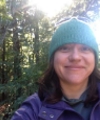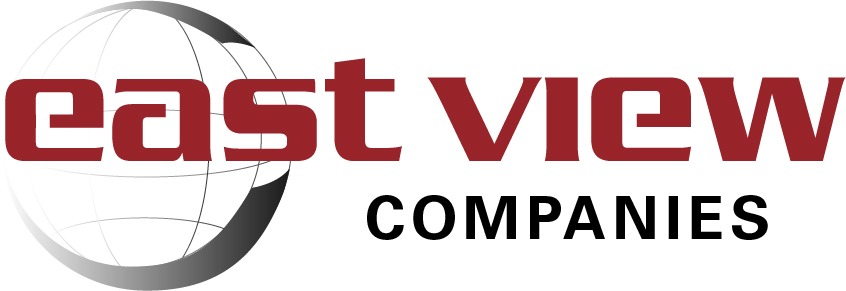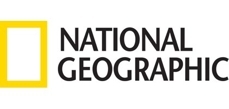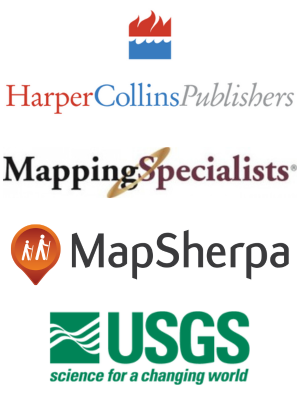WEDNESDAY, NOVEMBER 30
2:00 P.M. – 5:00 P.M.
Business of Building Apps With Open Data, Moderator – Margaret Spyker, GISP, LEED GA
 Margaret Spyker
Margaret Spyker
GISP, LEED GA
GIS Analyst & Open Data Consultant
Xentity Corporation
Margaret Spyker works as a consultant for the State of Colorado Business Intelligence Center and is the Data Team Lead for their program Go Code Colorado – a statewide apps competition designed to challenge the developer and tech communities to build apps and businesses using open data. She works for Xentity Corporation, a Golden, Colorado based company that contracts with government agencies for GIS and Data Curation Services using Agile Project Management techniques. Some of her other contracts for Xentity have included an aggregate parcel dataset for the State of Colorado, 100 year land use change detection study measuring irrigated acres for a Colorado water company, and building a geospatial data warehouse to generate visualizations and interactive maps for the Illinois Healthcare Marketplace.
Prior to working for Xentity, Spyker spent 4 years at a GIS Research Center at Western Michigan University following a 2-year Assistanceship to attain her MA in Geography and Urban / Regional Planning. She is certified as a GISP and LEED GA, on the winning team for the 2013 Living Building Challenge Chicago Design Competition, and one of the newest IMIA Americas Board members.
“Go Code Colorado and the Evolution of the Data Liaison”
Data is always in beta. There is a tremendous effort to refining it and making it useful. The most realistic path to this goal is to socialize the effort. Data as public wealth is almost always being used as secondary data – the government agency collects the data as a primary user for a specific purpose, but it often has additional applications for secondary users to solve problems and create useful insights.
Go Code Colorado works with state agencies to populate the Colorado Information Marketplace (data.colorado.gov) with machine readable data that will enable developers to build useful web and mobile applications to benefit businesses in the State of Colorado. This allows for a unique position in understanding what the data consumers need and matching that need with what the data providers have to offer. Go Code Colorado data teams focus on their role as “data liaison” to help users understand what only data providers know about data and capture feedback from the Go Code Colorado competitors. This enables public data sets with thoroughly vetted metadata delivered in a well-designed user experience (UX).
Government data stewards and secondary end users of data often live in very different worlds, without common language or context for each other’s needs and desires. Having staff that is positioned between the two worlds that also knows enough about each party’s needs and desires, is critical to bridging the gap. And bridging the gap is critical to truly enabling the crowdsourcing of taking public data and creating useful applications and insights. Visit the Go Code Colorado website for ways to get involved and more on the data liaison resources.
“Identifying and Capturing Value Using GIS”
All successful businesses bring value, or perceived value, to their clients. There are a myriad of opportunities to leverage GIS to make life more enjoyable, safe or to save time and money. During this presentation we shall discuss how GIS practitioners can evaluate whether opportunities have a clear path to being successful profit centers for a GIS Consulting firm.
 Ari Isaak
Ari Isaak
Founder & CEO
Evari GIS Consulting
Ari Isaak is the Founder and CEO of Evari GIS Consulting (Evari GIS). He has helped build Evari GIS from a 1 man shop in 2012 (Ari) to a staff of 16 people today. Isaak has over 15 years working with the Esri technology stack and related technologies. His interests include cloud architecture, web server administration, municipal street and roadway lighting, driving a common operating picture and streamlining access to enterprise geographic data in diverse and dynamic organizations.
Isaak brings real world knowledge and a proven track record of aligning GIS technologies with business needs. He has comprehensive experience creating data, presenting compelling cartographic documents and developing enterprise scale solutions applicable to a wide range of disciplines.
“Disparate Data, Technology Fiefdoms and the Rise of the Geo-boffin”
Sparkgeo works with open data every day. We create value from open data, we clean open data, and we build visualizations from open data. Data, data, data. While the geospatial community’s efforts around open data are necessary and enormously valuable to our body of knowledge as a whole, we are facing significant problems in our near future. This is a familiar problem to those interested in maps. The problem is that of scale and subsequent data generalization. As it turns out, open data in one jurisdiction is not the same as open data in another. If we are to consider open data as a global resource, presently we are creating something akin to a distributed tower of babel. This problem goes far beyond positional accuracy, to formats, metadata, language, indeed encoding. If we want our automated vehicles to know about that new business, avoid that new median and be able to cross borders effectively, we shall have to think about open data more collaboratively or we will have a fleet of Teslas driving to null island (0,0).
References:
http://www.sparkgeo.com/blog/scale-in-a-time-of-web-maps/
http://www.sparkgeo.com/blog/data-is-opinionated/
http://www.sparkgeo.com/blog/git-for-the-world/
http://www.sparkgeo.com/blog/pokemon-automated-cars-augmented-reality-and-the-rise-of-the-geo-boffins/
http://www.sparkgeo.com/blog/technology-is-great-but-invest-in-data/
 Will Cadell
Will Cadell
Founder
Sparkgeo
Will Cadell is the founder of Sparkgeo, where they build geospatial technology for some of the biggest brands on Earth. Since starting Sparkgeo he has been helping startups, large enterprises and non-profits across North America make the most of location and geospatial technology.
Leading a team of highly specialized, deeply skilled geospatial web engineers Cadell has built products, won patents and generally broken the rules. Holding a degree in Electronic and Electrical Engineering and a Masters in Environmental Remote Sensing, he has worked in academia, government and in the private sector, on two different continents making things better using geography and technology. Cadell insists on living close to (decent) snow and is often found in airport lounges.
“GIS as a Habitat and Land Planning Resource”
The origin of modern Geographic Information Systems (GIS) analysis techniques stem from early ecological planning techniques pioneered by Landscape Architects of the 1960’s. This session briefly explores those origins and how modern environmental and land use planning builds upon those early techniques to identify key areas for habitat conservation, restoration and reductions in water use for public open space in the arid west. Several project case studies are utilized to convey how GIS and other remote sensing is best utilized as well as discussing some of the limitations of the technology for habitat and land use planning.
 Michelle Landis
Michelle Landis
Senior Landscape Architect
Great Ecology
Michelle Landis is a senior landscape architect with a portfolio of land planning and design projects located throughout the western United States. She regularly works with agencies at the local, state and federal level to harness the use of Geographic Information Systems (GIS) as a land planning tool in the early stages of land planning. In addition, she works closely with the scientific staff at Great Ecology to utilize GIS and other remote sensing data to identify the ecological health at the regional and site specific scale to plan for habitat restoration that maximizes biodiversity.
“U.S. Geological Survey and National Open Data”
The U.S. Geological Survey has long made digital geospatial data openly available. More data than ever are offered with more on the way. This includes data previously made available as analog products for sale, such as topographic maps and many aerial photos. Orthoimagery, ifsar- and lidar-sourced elevation, surface water and watersheds, geographic names, land cover, transportation, boundaries, and structures comprise content from The National Map. Adding to this, topo maps are now being revised every three years and released as a free digital document file. All historical topo maps are now available for a free download too, along with geological maps. USGS is now openly accepting data via crowdsourcing for structure locations that will form the National Structures Dataset and appear on US Topo maps.
“Mapillary: A Whole New Perspective on Capturing Data”
Mapillary is a passionate community of people who want to make the world accessible to everyone by creating a photo representation of the world. Anyone can join the community and collect street level photos by using simple tools like smartphones or action cameras. All photos are available as open data with the CC BY-SA license. I shall describe in 5 minutes how we collect, mine and distribute the mined data to third parties.
 John Gyllenspetz
John Gyllenspetz
Co-founder & Lead Architect
Mapillary
Johan Gyllenspetz is a co-founder of Mapillary, a computer vision platform, which creates street level imagery for extracting geospatial data. As the Lead Architect, Johan leads front-end and infrastructure engineering. Johan was introduced to the exciting world of GIS through Mapillary. He is a firm believer in open licenses and a strong supporter of OpenStreetMap. Johan received a Master in Computer Science from Lund University.
 Drew Decker
Drew Decker
The National Map Liaison
U.S. Geological Survey
Drew Decker is The National Map Liaison for southern California and works for the National Geospatial Program within USGS. He works with local, state, and other federal agencies to coordinate mapping production, maintenance, standards, and planning in support of The National Map. He also provides support to USGS scientists and the public for mapping related assistance concerning geographic data.
Decker previously worked at Texas Water Development Board and Texas Department of Information Resources as a program manager and GIS analyst supporting statewide mapping initiatives.









